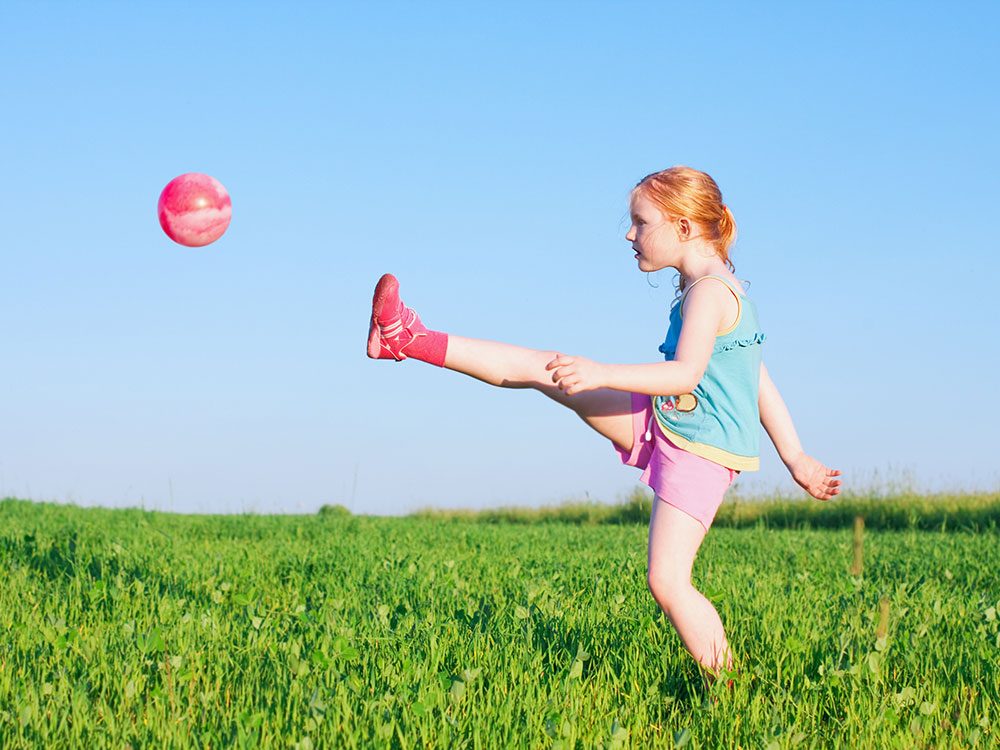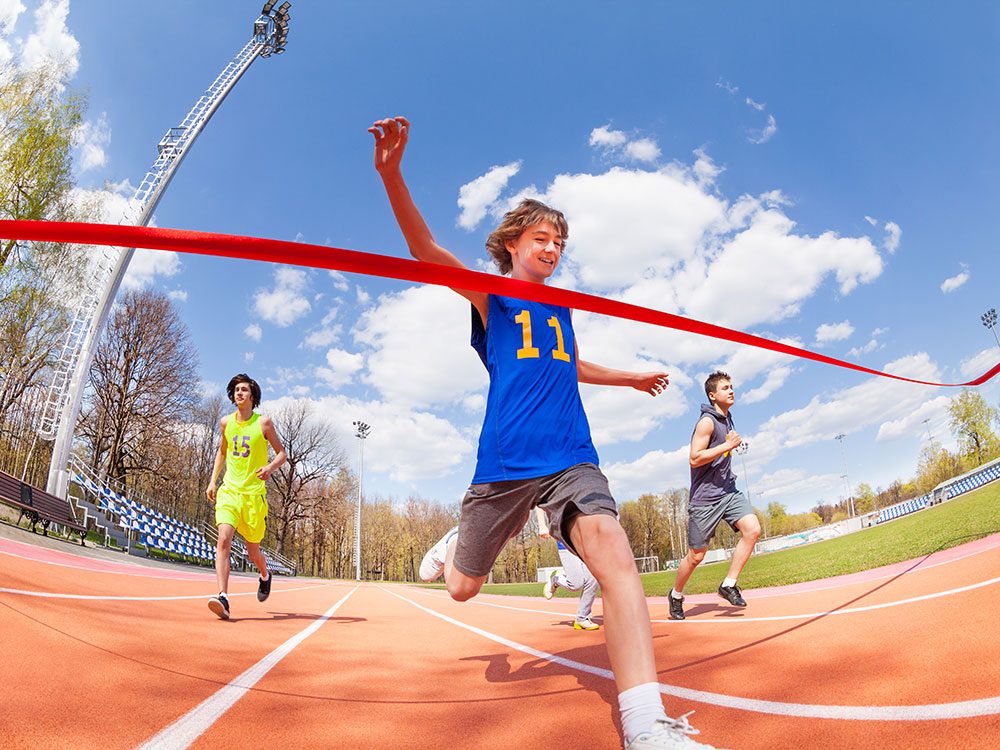
1. Exercise enhances a child’s ability to concentrate
In order to score well on a test, kids need to be able to concentrate on the task at hand. Studies have shown that exercising before a test helps increase the volume of the basal ganglia—an important part of the brain that helps with executive control, function and attention.
Check out these 10 All-Natural Concentration Boosters!

2. Exercise increases a child’s attention span
Kids who are physically active also tend to be able to focus on any given task for a longer period of time—a skill that definitely comes in handy when they encounter a tough math problem.

3. Physical activity improves memory
Being able to recall key facts and concepts quickly is critical to doing well on tests, and research has shown physical activity can help in this regard as well. In one study published in Brain Research, 9- and 10-year-olds who were physically fit had larger hippocampi than their peers; this in turn translated to better memory task performance.
Check out these 6 Everyday Habits of People With Impressive Memory!

4. Exercise boosts confidence
Regular physical activity increases confidence and self-esteem in all areas of life, including academics. Students who are more confident are better problem solvers. In other words, believing leads to achieving!
Take a cue from these 12 Habits of Highly Confident People!

5. Exercise reduces stress and anxiety
We can all relate to having pre-test jitters. What if I fail? What if I forget everything? What if my pencil breaks and my calculator quits working? A quick burst of activity can help clear the mind, reduce stress and crush those negative thoughts.

6. Physical activity heightens creativity
Sometimes doing well on a test requires more than a little creativity. Surprisingly, physical activity has been shown to improve convergent and divergent thinking, leading to a tangible increase in creative problem solving ability.

7. The benefits of physical activity increase over time
While some of the effects of physical activity are immediate, the longer-term mental health benefits are even greater. In addition to increasing confidence, creativity and concentration right away, over time, exercise can increase students’ neuroplasticity, allowing them to form new pathways in their brains and become faster learners. It also increases the amount of oxygen flowing to the brain and releases neurotransmitters and neurotrophins that support higher learning and thinking.
For tips on how to encourage your kids to move more, check out ParticipAction!